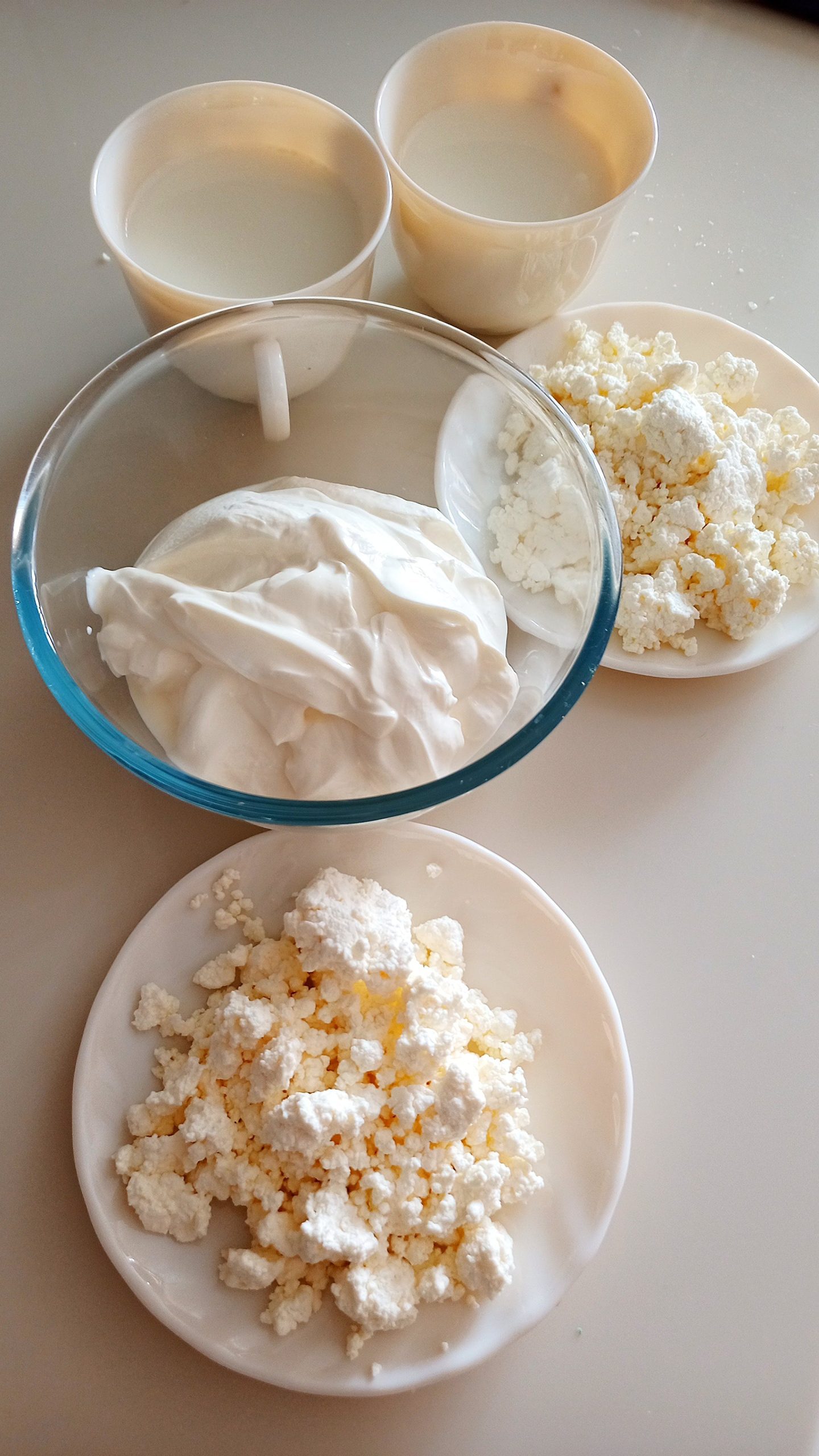
- Overview of Omega-7
- Brief History of Omega-7
- Functions of Omega-7
- Recommended Daily Intake (RDI), Recommended Dietary Allowance (RDA), Adequate Intake (AI), or Reference Nutrient Intake (RNI) for Omega-7
- Deficiency of Omega-7
- Food Sources of Omega-7 and Where to Get It From
- Omega-7 and Its Interaction with Other Medications
- Websites and Articles to Delve into the Benefits of Omega-7
- Disclaimer
Overview of Omega-7
Omega-7 fatty acids, specifically palmitoleic acid, are a lesser-known class of monounsaturated fats with emerging health potential. While found in small amounts in certain animal and plant sources, sea buckthorn oil is a notable concentrated source of omega-7.
Preliminary research suggests potential benefits for cardiovascular health, metabolic function, and skin health. Omega-7 may contribute to lipid metabolism, helping maintain healthy cholesterol levels.
Moreover, it exhibits anti-inflammatory properties, potentially supporting conditions like insulin resistance. While more research is needed, incorporating omega-7-rich foods or supplements may offer a holistic approach to well-being, though individual needs and health conditions should be considered before supplementation.
Brief History of Omega-7
The exploration of Omega-7 fatty acids, particularly palmitoleic acid, has a more recent history compared to other well-known fatty acids. The discovery and recognition of Omega-7 as a distinct component in dietary fats have unfolded over the past few decades.
- Traditional Use:
- Some cultures, particularly in Asia and Eastern Europe, historically used sea buckthorn, a plant rich in Omega-7, for various medicinal purposes. Traditional uses often involved treating skin conditions and supporting general health.
- Identification and Isolation:
- The specific identification and isolation of palmitoleic acid as a unique Omega-7 fatty acid gained attention in the latter part of the 20th century. Researchers began to focus on understanding its distinct properties and potential health implications.
- Scientific Exploration:
- Scientific interest in Omega-7 increased as researchers delved into the potential health benefits associated with this fatty acid. Studies have explored its impact on cardiovascular health, metabolic function, inflammation, and skin health.
- Emerging Research:
- While Omega-7 is not as well-studied as Omega-3 or Omega-6, ongoing research aims to uncover its full range of physiological effects. Early findings suggest potential positive impacts on lipid metabolism, inflammation, and metabolic disorders.
Nowadays, the field of Omega-7 research continues to evolve, and more studies are needed to fully understand its mechanisms and benefits. It’s important to stay updated with the latest scientific literature for the most current information on Omega-7 fatty acids.
| Stage | Aspect | Details |
|---|---|---|
| Traditional Use | Cultures Using Sea Buckthorn | Some cultures, particularly in Asia and Eastern Europe, historically used sea buckthorn, a plant rich in Omega-7, for various medicinal purposes. Traditional uses often involved treating skin conditions and supporting general health. |
| Identification and Isolation | Unique Omega-7 Fatty Acid – Palmitoleic Acid | The specific identification and isolation of palmitoleic acid as a unique Omega-7 fatty acid gained attention in the latter part of the 20th century. Researchers began to focus on understanding its distinct properties and potential health implications. |
| Scientific Exploration | Increased Interest in Omega-7 | Scientific interest in Omega-7 increased as researchers delved into the potential health benefits associated with this fatty acid. Studies have explored its impact on cardiovascular health, metabolic function, inflammation, and skin health. |
| Emerging Research | Ongoing Studies on Omega-7 | While Omega-7 is not as well-studied as Omega-3 or Omega-6, ongoing research aims to uncover its full range of physiological effects. Early findings suggest potential positive impacts on lipid metabolism, inflammation, and metabolic disorders. |
This table summarizes the different stages of Omega-7 exploration, from traditional use to emerging research, highlighting key aspects and developments.
Functions of Omega-7
Omega-7 fatty acids, particularly palmitoleic acid, have garnered attention for their potential health benefits. While research is ongoing and not as extensive as that for other omega fatty acids, there is evidence suggesting several functions and potential positive effects associated with Omega-7:
- Cardiovascular Health:
- Omega-7 may contribute to cardiovascular health by helping to maintain healthy lipid profiles, including supporting balanced levels of cholesterol and triglycerides.
- Metabolic Function:
- Preliminary studies suggest a role for Omega-7 in metabolic health, potentially influencing insulin sensitivity and glucose metabolism, which could be beneficial for individuals with metabolic disorders.
- Inflammation Regulation:
- Omega-7 fatty acids exhibit anti-inflammatory properties, potentially contributing to the management of inflammatory conditions. This property may be beneficial for conditions associated with chronic inflammation.
- Skin Health:
- Omega-7 is thought to contribute to skin health by promoting hydration and supporting the skin’s natural barrier function. It may aid in managing conditions like dry skin and potentially contribute to anti-aging effects.
- Mucosal Tissue Support:
- Omega-7 may play a role in supporting mucous membrane health, particularly in the digestive and respiratory systems. This can contribute to maintaining the integrity of these tissues.
- Weight Management:
- Some research suggests that Omega-7 may influence factors related to weight management, potentially contributing to a healthy body weight.
- Eye Health:
- Limited studies propose a connection between Omega-7 fatty acids and eye health, with potential benefits for conditions like dry eyes.
It’s important to note that while these potential functions are supported by some studies, more research is needed to fully understand the mechanisms and extent of the benefits associated with Omega-7. Additionally, individual responses may vary, and it’s advisable to consult with healthcare professionals for personalized advice, especially if considering Omega-7 supplements.
Recommended Daily Intake (RDI), Recommended Dietary Allowance (RDA), Adequate Intake (AI), or Reference Nutrient Intake (RNI) for Omega-7
As of 2023, there is no established Recommended Dietary Allowance (RDA), Recommended Daily Intake (RDI), Adequate Intake (AI), or Reference Nutrient Intake (RNI) specifically for omega-7 fatty acids. The attention and research on omega-7 fatty acids, particularly palmitoleic acid, are relatively recent compared to other well-known fatty acids like omega-3 and omega-6.
The dietary recommendations for omega-7 are not as well-defined as those for essential fatty acids like omega-3 and omega-6. The emphasis in nutritional guidelines often centers around a balanced and varied diet that includes a mix of healthy fats from different sources.
If you are considering omega-7 supplements or if you have specific health concerns, it’s advisable to consult with healthcare professionals or registered dietitians. They can provide personalized advice based on your individual health status, dietary habits, and nutritional needs. Additionally, staying updated with the latest scientific literature and recommendations is important, as nutritional guidelines can evolve over time with ongoing research.
Deficiency of Omega-7
Presently, omega-7 fatty acid deficiency is not a well-documented or widely recognized health concern. Omega-7s, particularly palmitoleic acid, are not classified as essential fatty acids, meaning the body can synthesize them to some extent. Additionally, omega-7s are found in small amounts in various dietary sources, such as certain oils (e.g., macadamia nut oil), fish, and some fruits.
That said, the understanding of omega-7s is still evolving, and research into their potential health benefits and role in the body is ongoing. While there is interest in the potential positive effects of omega-7s on cardiovascular health, metabolism, and skin health, the concept of a deficiency in the traditional sense is not firmly established.
It’s important to note that the human body requires a balance of various fatty acids, including omega-3, omega-6, and omega-9, for optimal health. If you have concerns about your fatty acid intake or if you are considering omega-7 supplements, it’s advisable to consult with healthcare professionals or registered dietitians for personalized guidance based on your specific health needs and dietary habits.
Food Sources of Omega-7 and Where to Get It From
Omega-7 fatty acids, particularly palmitoleic acid, are found in specific food sources, though they are not as well-known as omega-3 or omega-6 fatty acids. Here are some food sources where you can find omega-7:
- Macadamia Nut Oil:
- Macadamia nut oil is one of the richest sources of omega-7 fatty acids, particularly palmitoleic acid.
- Sea Buckthorn Oil:
- Sea buckthorn oil is derived from the berries of the sea buckthorn plant and is known to be a concentrated source of omega-7 fatty acids.
- Fish Oil:
- Some types of fish oil, such as those derived from certain fish species like salmon, may contain omega-7 fatty acids along with other omega fatty acids.
- Dairy Products:
- Certain dairy products, especially those from grass-fed animals, may contain small amounts of omega-7 fatty acids.
- Avocado:
- Avocados contain various fatty acids, including small amounts of palmitoleic acid.
- Eggs:
- Eggs, especially those from hens raised on a diet high in omega-7-rich grains, may contain some omega-7 fatty acids.
It’s important to note that while these foods contain omega-7 fatty acids, they may also contain other types of fatty acids. Additionally, the concentration of omega-7s in these foods can vary.
If you are specifically looking to increase your omega-7 intake, you might consider incorporating sea buckthorn oil or macadamia nut oil into your diet. As with any nutritional consideration, it’s advisable to consult with healthcare professionals or registered dietitians for personalized advice based on your individual health needs and dietary preferences.
Omega-7 and Its Interaction with Other Medications
Specific information regarding interactions between omega-7 fatty acids and medications is limited, primarily because the research on omega-7 is not as extensive as that on other omega fatty acids. However, there are general considerations when it comes to dietary supplements and potential interactions with medications. If you are considering omega-7 supplements, it’s crucial to consult with your healthcare provider, as interactions can vary depending on individual health conditions and the specific medications you are taking.
Here are some general points to consider:
- Blood Thinners (Anticoagulants):
- Omega-7 fatty acids may have mild antiplatelet effects. If you are taking blood thinners like warfarin, aspirin, or other anticoagulant medications, combining them with omega-7 supplements could increase the risk of bleeding. Consult with your healthcare provider for personalized advice.
- Diabetes Medications:
- Omega-7 supplements might influence blood sugar levels. If you are taking medications for diabetes, monitoring your blood sugar levels closely and consulting with your healthcare provider is advisable.
- Immunosuppressant Medications:
- Omega-7s, like other fatty acids, may have immune-modulating effects. If you are taking immunosuppressant medications, discuss the use of omega-7 supplements with your healthcare provider.
- Interactions with Other Fatty Acids:
- Considering the overall balance of fatty acids, including omega-3 and omega-6, is important. Achieving a balanced ratio of different fatty acids is generally recommended for optimal health.
Always inform your healthcare provider about any supplements you are taking, including omega-7 supplements. This helps ensure that your overall treatment plan is well-coordinated, and potential interactions can be assessed based on your individual health status.
Since knowledge and recommendations may evolve, it’s advisable to seek the most up-to-date information and guidance from your healthcare provider.
Websites and Articles to Delve into the Benefits of Omega-7
- Wikipedia – Omega-7 Fatty Acid
- General information about Omega-7, its sources, and potential health benefits.
- OmegaQuant – What Are Omega-7 Fatty Acids?
- Overview of Omega-7 fatty acids and their importance.
- Therascience – Omega-7
- Information on Omega-7 as an active ingredient and its role.
- Sea Buck Wonders – Omega-7 Health Benefits
- Highlights the health benefits of Omega-7, particularly from sea buckthorn.
- Pharmanord – Omega-7
- Focuses on Omega-7’s role in eye health.
- Cytoplan – What Is Omega-7
- Expert insights on Omega-7 and its significance.
- Life Extension – Omega-7 Benefits
- Explores the benefits of Omega-7 supplementation.
- Wikipedia – Omega 7
- Wikipedia page specifically dedicated to Omega-7.
- Vitae International – Omega-7 Hydration
- Discusses the skin hydration benefits of Omega-7.
- AZ Sibu – The Truth About Omega-7
- Insights into purified Omega-7 from sea buckthorn.
- Pennington Med Spa – Benefits of Omega-7
- Discusses the benefits of Omega-7, particularly in skincare.
- Clinical Studies NIH – Omega-7
- Information on a clinical study related to Omega-7.
These websites provide a comprehensive overview of Omega-7, including its sources, benefits, and ongoing research. Always consult with healthcare professionals for personalized advice.
Disclaimer
The information is solely provided for educational purposes. It is not intended to diagnose, treat, cure, or prevent any disease. Seek the advice of your physician or qualified healthcare provider with any questions you may have regarding a medical condition at all times. Never disregard professional medical advice because of something you have read or learned from this article.






